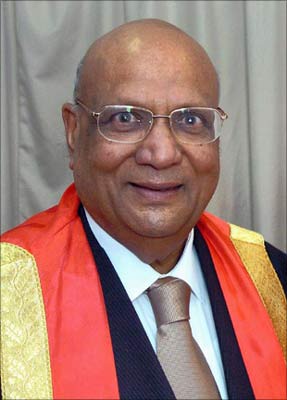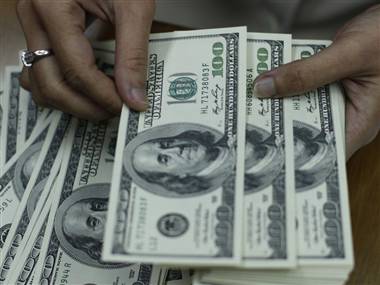 | « Back to article | Print this article |
India safe place to invest: Swraj Paul
Batting for India, leading NRI industrialist Lord Swraj Paul has said that doing business in the country was a safe bet as its democracy assures that business environment will not be held hostage to 'unanticipated upheavals'.
"At a time when guerrilla wars, insurrections, drug wars, kidnapping of businessmen and like happenings are so frequent, there are advantages in the stability of relatively lower violence societies. When ethnic tensions are worsening in many important countries,
Click NEXT to read further. . .
India safe place to invest: Swraj Paul
"India has managed religious and ethnic issues rather well," Lord Paul said in London on Tuesday night.
"Our company, Caparo, has built 32 plants in India in the last eight years and we employ almost 9,000 people.
"We strongly believe there is long term potential in India and we want to be part of that Growth," Lord Paul, chairman of the Caparo Group, said.
Speaking at the Anglo-Indian Summit on 'Investing In India', he said every foreign investment decision was a comparative judgement -- an evaluation of geo-risk.
Click NEXT to read further. . .
India safe place to invest: Swraj Paul
"By these yardsticks I think India holds up pretty well," he said, adding "we live in a world of violence and tension -- and business is often the first victim of these forces.
"India's democracy, slow and cumbersome as it is, provides an assurance that business environment will not be held hostage to unanticipated upheavals," he said.
Lord Paul also made four observations which he said might be helpful in the larger context of evaluating business opportunities in India.
Lord Paul noted that in India there was almost universal acceptance of free enterprise economics by all segments of political society.
Click NEXT to read further. . .
India safe place to invest: Swraj Paul
"Social democrats, communists, regional parties and almost the whole spectrum of the Indian political universe is now committed to globalised capitalism. There is a sea-change from the past and I believe it will endure," he said.
He said economic performance is becoming the only rationale for rewards at the polls, as is seen in most recent regional and state elections.
"The impact of this in creating business-friendly policies is increasingly evident."
Secondly, he pointed out that the state governments are acquiring a greater degree of importance and policy-making independence.
Click NEXT to read further. . .
India safe place to invest: Swraj Paul
"A very significant and growing part of the country is now governed by political groups different from the national government. These state governments are more and more impatient with the slowness of New Delhi," he said.
"They are making policy, demanding better infrastructure and trying to streamline their bureaucracies.
All of them see the advantages of foreign involvement in their economies. If this trend continues, it will produce significant improvements in some of the tedious bottlenecks that have made doing business in India tiresome," he added.
Click NEXT to read further. . .
India safe place to invest: Swraj Paul
"There is another new element that is making a major impact on Indian society: the rise of grassroots civic organisations. In every part of the country this civil society activism is evident and is being strongly supported by India's independent news media," he said.
Lord Paul said the huge and spontaneous response to anti-corruption movements led by prominent social activists can only escalate.
"All this has had an effect on the new capitalistic society, and in India there is more and more recognition that they must not abuse the system."





